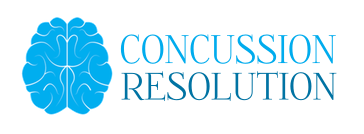When A Head Injury Is Not A Concussion
When is it not Post Concussion Syndrome (PCS)?
As parents, we want what is best for our children. We are always faced with decisions and the stress of making the right or wrong ones. We are inundated with media, and as mentioned, concussions have received ample coverage – and with good reason because quality of life is at stake.
But how do we wade through the information without going overboard?
The first step is to pay attention to any physical, behaviour and cognitive changes in yourself or your child. When you see changes, ask questions which can give you information necessary to know what to do next. Keep communication open. If there seem to be symptoms, any doctor or alternative sports therapy practitioner you seek out will need to know the following:
- How was the injury sustained?
- When?
- What are the symptoms being experienced?
- When did they start?
- Was there a preceding event?
[message type=”custom” width=”100%” start_color=”#FFffff” end_color=”#ffffff” border=”#0073A3″ color=”#333333″]Symptoms of depression, over training and some PCS are the same. Knowing the symptoms is not a replacement for diagnosis, so always see a medical practitioner for a more in depth diagnosis.[/message]
Some Things To Consider
- When playing sports, did your child receive a hit in a practice or game? This includes heading a ball in soccer. Ask them, their coach and their friends if you were not present for the “hit”.
- Are they in a high risk sport? Cheerleading, football, hockey, basketball, soccer, boxing.
- Was there a fall?
- Are there symptoms of depression? Depression is a symptom of concussion but it doesn’t mean there was a concussion to have depression.
- Mild car accidents that result in whiplash can increase the symptoms of concussions. Was your child involved in a car accident recently? Even a minor car accident?
- Over Training Syndrome can include insomnia, depression, irritability, fatigue, loss of appetite and headaches.
- Are there cognitive deficits that have lasted longer than 3 months? Difficulty with classes, schoolwork or paying attention?
So if it is PCS, what do you do? You speak up!
